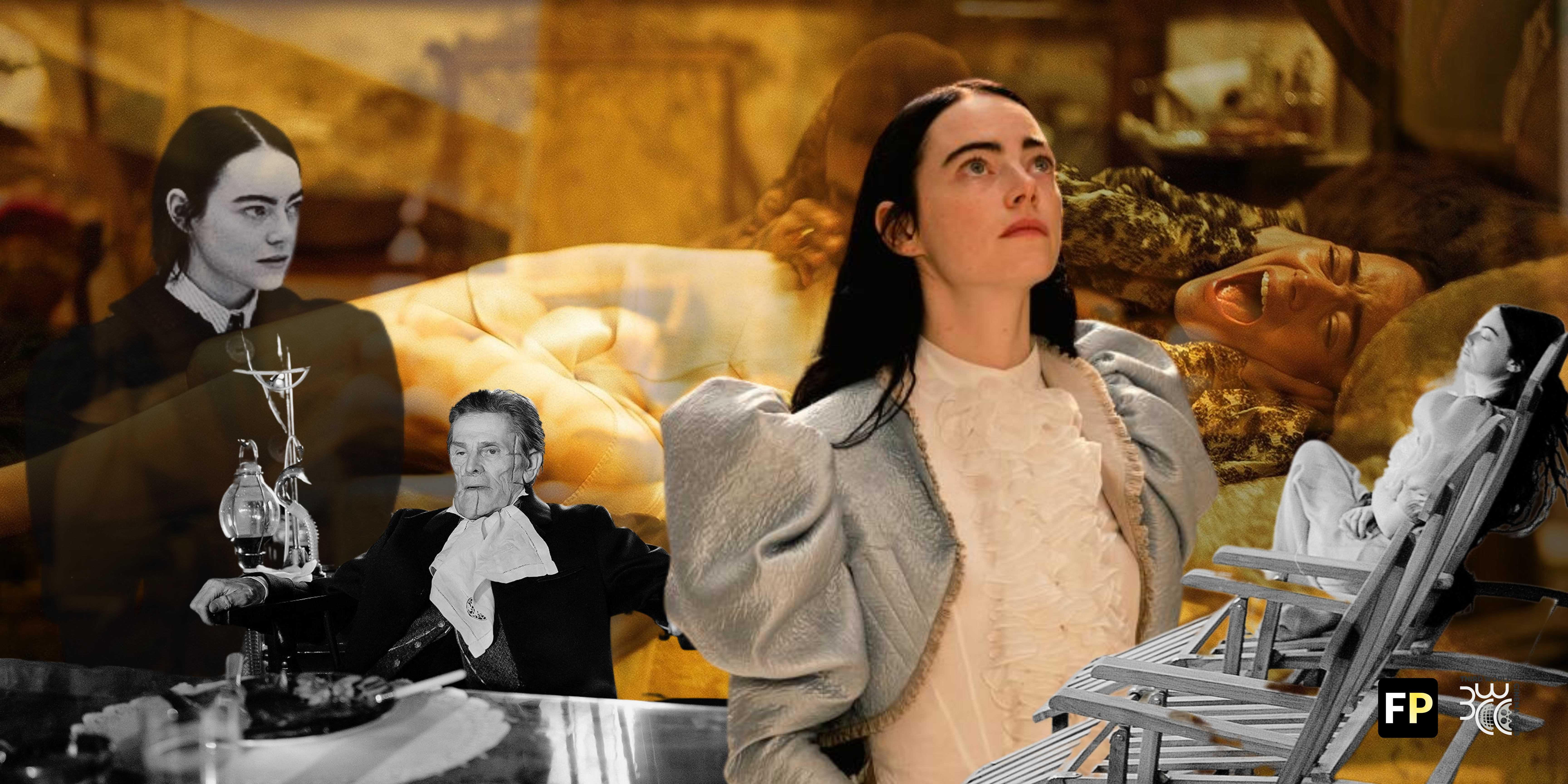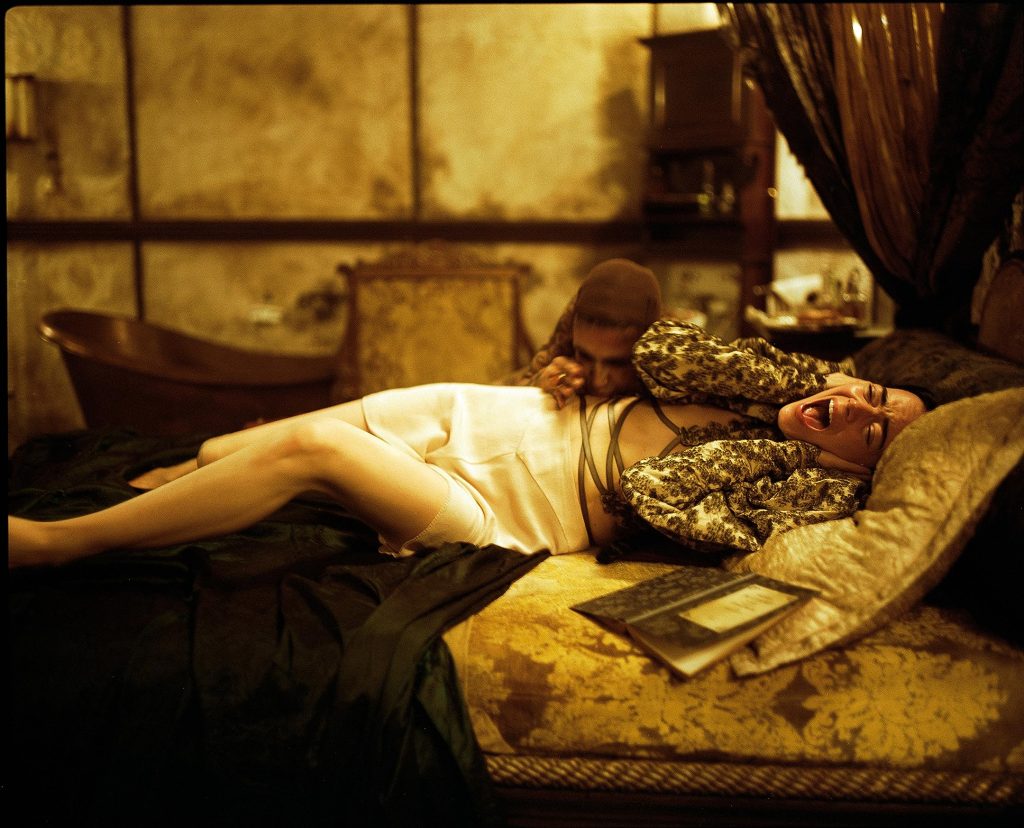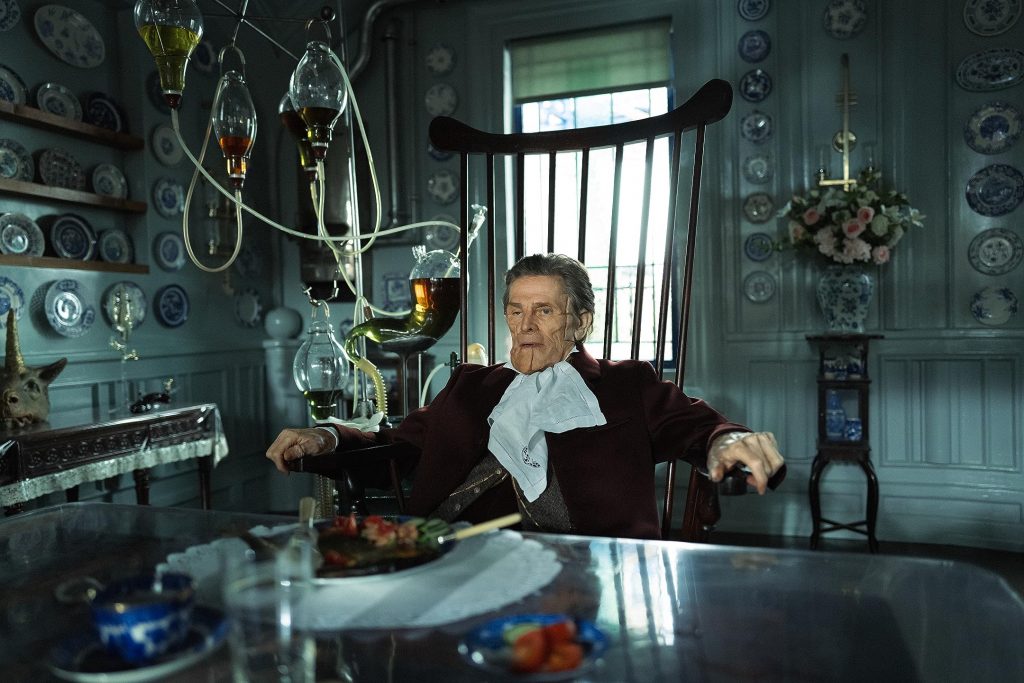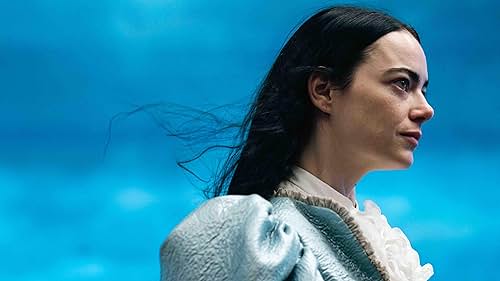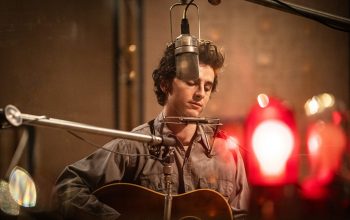Mae Malaya reviews ‘Poor Things’, this year’s QCinema Opening film. Caution, spoilers are present in this review.
Yorgos Lanthimos’ 2023 feature, Poor Things— which bagged the Golden Lion prize at the Venice Film Festival a few months ago, is the official opening film for this year’s QCinema International Film Festival. Filipino cinephiles did not expect to have the opportunity to watch this critically acclaimed film on the big screen this early, but with the hard work and persistence of the festival, the audience is fortunate enough to see it in its full glory, as what it deserves.
The adapted Alasdair Gray novel proves that when successfully done, film adaptations can earn just as much merit as the original work. This has been possible by a cast that perpetually shined on their own, at the right time, led by what seems to be Emma Stone’s career-best performance yet. She perfected the nuances of strange, ridiculous yet charming Bella Baxter, who is just another experiment of Dr. Godwin “God” Baxter (played by Willem Dafoe), a renowned doctor and scientist who eventually shows attachment to his subject.
But like any other subject, Bella has a past and a completely different life before becoming a mother and a baby. Her married life was satisfying, except that she did not want to have a child of her own. This was how God found her after leaping off a bridge.
However, as much as God desires to control his re-creation, it is only fitting that Bella discovers things on her own, as she is a woman of reason and intellect. Even with the mind of a toddler, Bella has the physique of a grown-up woman which also needs to be cared for and satisfied. Bella navigates toward the truths of her past, the concept of humanity, politics, and important schools of thought in philosophy through her body— how in one ordinary afternoon, she discovers the euphoria brought by pleasuring herself.
God further tries to monitor Bella’s progress by recruiting one of his students, Max McCandles (Ramy Youssef), to thoroughly inspect and report Bella’s improvements. He finds Bella lovable which God also recognizes, so he presents the idea of him marrying her. This is arguably a relatively easy decision for both parties to agree on until lawyer Duncan Wedderburn (Mark Ruffalo) enters the story. These two men in Bella’s life are significant in figuring out herself; two completely different men who treat her differently. One, who respects her because he knows her limitations, and the other who disrespects her because he knows how much deference and pleasure from sex she could offer.
With Duncan’s eagerness to navigate the world with Bella, he also introduces him to all sorts of carnal pleasures. However, he forgets that Bella has her own mind. Despite her hunger and desperation for sex, she also craves knowledge, ambition, and fruition, which the men of her life fail to realize that she can learn. As she traverses the beautiful different cities which looked almost looked like real-life paintings, she also discovers the horrors that come with it. Magnified the film’s tone is the stunning score which gave justice to Bella’s amalgamation of thoughts.
As the film goes on, Bella meets different men and women who give her a glimpse of the harsh realities of the world, and at times, the joy of just being surrounded by people who truly matter. Her exposure to different ideas and personalities, despite being a cruel experience, is only necessary for her to realize that she’s got her power in her hands (pun intended), and when not forced or coerced, all that matters is that she is free to make her own choice and if necessary, be held liable for any repercussions.
Reviews from other members:
From Roy Narra
Poor Things is an odyssey playground of Yorgos Lanthimos where he continues to play and assess his favorite themes: innocence, morality, and sexuality. Throw in some animals as metaphors and we get ourselves another visit to Lanthimos’ zany mind.
But in Poor Things, Lanthimos is not like the early stages of Bella Baxter in which he mindlessly plays with his adult topics for fun. He has the discipline to command his style in supplementing Bella’s crazy journey to female enlightenment and self-discovery.
The feminist message, may it look and feel like a sweet victory in the end, is still caged in what a liberal man’s ideal version of female empowerment. Sex may be the bloodline of Bella’s grand coming-of-age journey but sex is also used to oversexualize our protagonist and make it the comedic punchline to her naivety.
Despite that glaring flaw, no one can’t deny that Emma Stone completely nails her role. She’s a beast, or rather a monster, as the determined curious Bella Baxter. The role of Bella can be exhausting as she’ll act like an 11-month-old kid who only learns 15 words per day then she’ll become a sex addict in the next 15 minutes but Stone made it look so easy and authentic. For some actresses, winning an Oscar is their peak but ever since Stone won her Oscar back in 2017, she just keeps getting better and better and in Poor Things, she converts the few remaining doubters of her talent.
From John Tawasil:
Yorgos Lanthimos is a pretty funny guy.
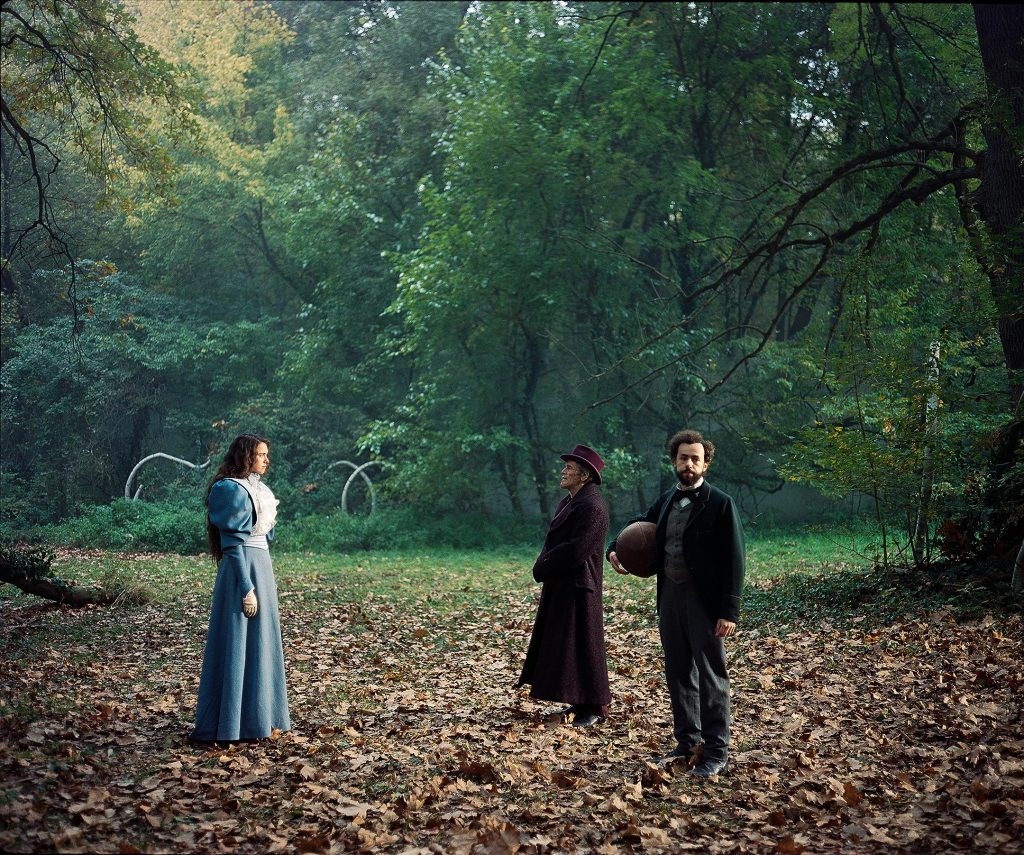
Or at least, he’s a guy that makes funny films, whose humor stems from either leaning into the absurdity that results from breaking a state of ‘normalcy’, or from the inherent weirdness of the way things are. In this case, a loose adaptation of Alasdair Gray’s 1992 novel, it’s a little bit of both.
Bella Baxter (Emma Stone) starts the film as quite the peculiar character. Talking mostly in single words and animal sounds, the new “daughter” of the scientist and anatomist Godwin Baxter (Willem Dafoe) is a bit of an enigma. It turns out that she’s the product of the older Baxter’s mad scientist experiments: he fished her dead, pregnant corpse near the bridge where she committed suicide, transplanted her still-alive fetus’ brain in her head and reanimated her.
The newly reanimated Bella has no conception of “polite society”, and navigates it with a naivete not unlike the titular character of Greta Gerwig’s Barbie (2023), though this journey takes a much more R-18 (and arguably better) turn. As Bella seeks to whet her ferocious sexual appetites, she meets a number of individuals who seek either to help her or to take advantage of her. Indeed, the film can be seen as how the men (and sometimes women) of that polite society react to such a disruption, and the hilarity that ensues when that woman would go her own way regardless.
As the film goes on, Bella grows (and Emma Stone, in what is perhaps the performance of her career, brings this across beautifully) and she learns, much as you or I would learn, about how the world is not all sunshine and rainbows and even in such a society, there are structures and hierarchies to be followed. Yet, even with that knowledge, is perhaps what’s most important: is that Bella makes all of these decisions by her own free will and carves out a space for herself regardless. And if she gets to do whatever she wants and goes wherever she needs to be, whether it be in Greece, France, or back in her home, what’s wrong with that? What’s funny about that? (Initially published from Present Confusion).
From Princess Kinoc
I came in with low expectations because in my mind I was already awestruck with his earlier film, Lobster. I did not expect anything more than what he continues to offer each year, which was good because boy did this take me to greater heights! That probably sounds like an orgasm, and with the many orgasms Bella Baxter has had in this film, it was definitely an orgasmic experience!
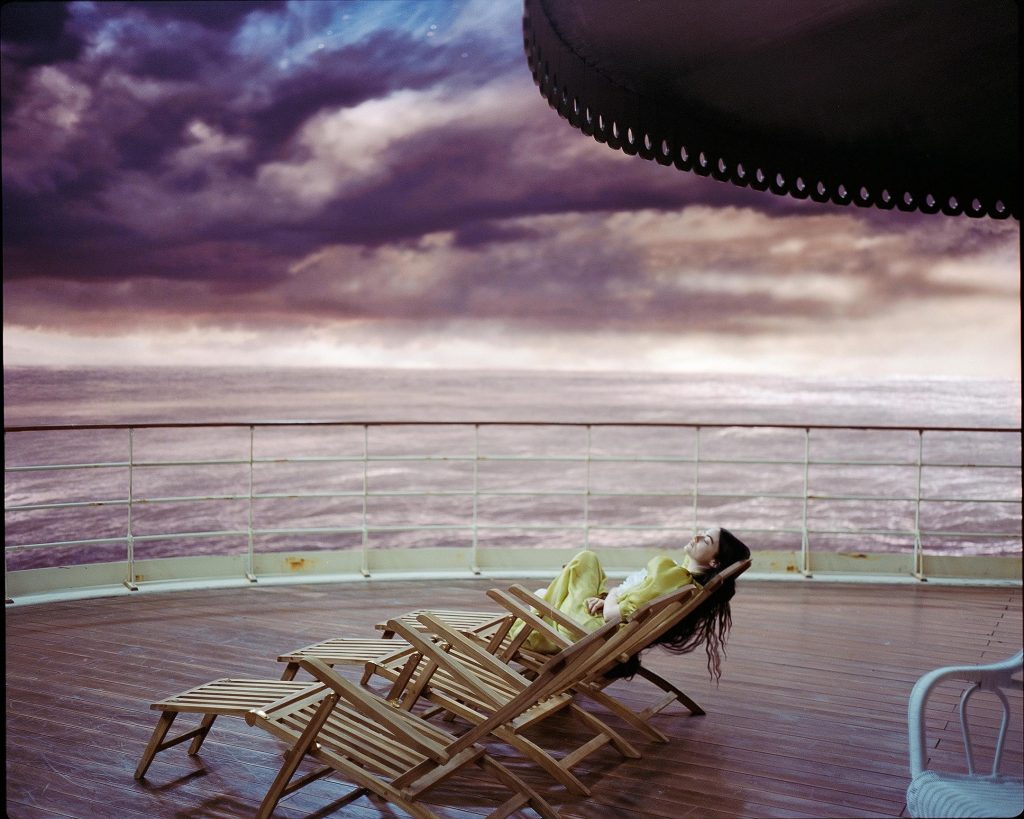
While we’re in the subject of orgasms, Yorgos Lanthimos’ approach to Alasdair Gray’s 1992 novel is similar in the ways they approach themes of social inequalities, relationships, and memory. Which is probably why he fits the role of adapting the novel onto film. Even by utilizing an alternative Victorian era, the film tackles the very same issues we encounter in this century.
Bella Baxter (Emma Stone), a monster who was reanimated by Dr. God (Wilhem Dafoe) whose fascination with the macabre is mostly due to scientific research, and especially as he himself is a monster. He was created to question and never to whet any emotional appetite. Bella on the other hand was created out of his lack of any emotional appetite for companionship, her purpose is unknown until she meets his student, and perhaps in his presence of pure academic inquiry, she develops something of an inquiry into her own being. Thus starting off on her own journey of self-discovery: from sexual appetites to an insight into the human condition.
Stone has gone a long way from her Easy A days. We see it first actually in Birdman, and in the many other brilliant ways she disappears into the roles she gets, she excitingly transforms into Bella. All the exciting elements that an empirical mind can experience and explore, she has exerted a thousand times of an effort to display onscreen. Can I just say that the way she walks into Bella Baxter’s shoes (literally and figuratively) from infancy to her own establishment is just brilliant? Perhaps the trust that she and Lanthimos already had since ‘The Favorite’ allowed her to see how the character should be played, and what it means to have women characters onscreen that showcase more depth than opulence and insight on how women’s bodies work.
The mise-en-scene of the film is like a melted dream, so surreal is the subject matter of the brain matter hence the design should follow. Robbie Ryan’s picturesque cinematography needs a standing ovation, the grainy 8mm-like texture is visually like the drawings on what Victorian-era books must look like when talking about scientific discoveries.
I could go on an on about the film but I would prefer it if you get on with the journey yourself. It’s amazing how films like these do not prefer to put us on a pedestal. It loosens the screws and shows us the truth.
From Jim Paranal
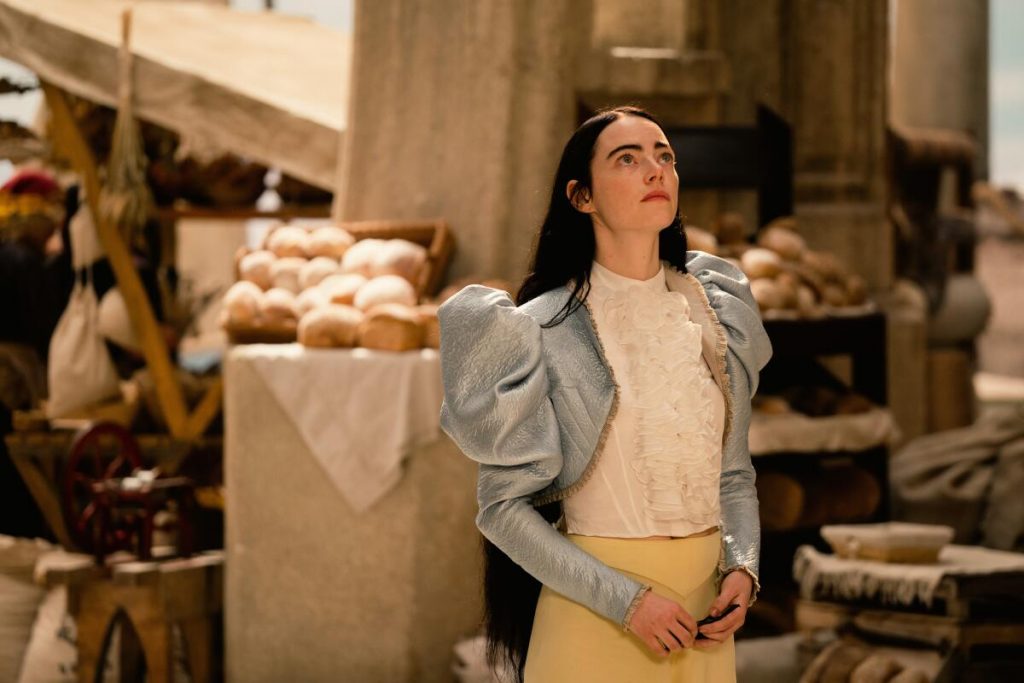
Grabe ‘yung dedication ni Emma Stone sa required physical acting dito sa pelikulang “Poor Things”. Somewhat medyo that kind of performance eh reminded me of Patty Duke in “The Miracle Worker” (1962) at Isabelle Adjani in “Possession” (1981). Napakahusay niya sa pelikula kaya naman pala front runner for Oscar Best Actress ulit. Ang maganda sa pelikula kahit multiple messages ay nailatag ng maayos at interesting ang style at treatment kaya hindi ka bibitaw sa pelikula. Mahusay si Yorgos Lanthimos kung paano binuo ang mundo ni Bella. Magaling ang composition ng shots even framing at paggamit ng kulay mula black and white hanggang sa may kulay. Ang pinakanagustuhan ko namang tauhan dito ay si Max (Ramy Youssef). Siya kasi ang progressive sa mga nakahalubilo ni Bella.
From Ela Bicera
Imagine having the free will to make your own choices, to follow your heart and passion, and be able to change your mind on things. Having a right to your own mind was not that simple back then in the Victorian era, especially if you’re a woman. But fret not, because with Dr. Godwin Baxter, changing your brain might actually make it possible.
When you watch a Yorgos Lanthimos film, prepare to be horrified all throughout and totally broken in the end. His female characters always had to make the tough choices, or most of the time they don’t have a choice at all, because survival is an utmost priority. With Nicole Kidman’s Anna Murphy in The Killing of a Sacred Deer (2014), she lets herself be devoured by her husband on some nights, and had to watch him decide on which of their children will live through the curse. With Rachel Weisz’ character as the short sighted woman in The Lobster (2015),falling in love with Colin Farrell’s David resulted in her being forcibly blinded by the loners. With Angeliki Papoulia and Mary Tsoni as siblings in Dogtooth (2009), as the only females in the family, they had to continue the bloodline within their family only and so they had to submit their bodies to their brother, not knowing the real consequences of it, or what it means in general. And even in The Favourite (2018), each woman is taking advantage of the other in order to survive. No amount of pain and agony they caused can beat the pride and ego they wanted to keep.
With Poor Things (2023) I think what makes Bella Baxter stand out the most out of all Yorgos’ characters is that as we became part of her journey on making up her own mind, we see through her eyes on how it is to define and discover what humanity is all about. As she’s becoming aware of her surroundings, of what the society dictates, she developed and strongly retained an honest and independent mind. What I liked the most is when she became aware of her own privilege as well, because despite being a test subject, she’s well provided for in terms of housing, food and money. She became resilient of course, but I like how Bella became proud of going through the uncomfortable life, and earning her keep. Sure, a lot of people (men, specifically) took advantage of her in the process, but what makes her wittiness and impulsiveness so interesting is how she followed her own instincts regardless of the good and harm it brings.
It is kind of surprising to me, with Yorgos to not make his main characters left broken in the end. But aren’t we all broken, despite all of our differences and livelihoods? But with Bella, she can now decide to break herself on a matter of her own choosing. Maybe we can too, unless, should we have a new brain too?
